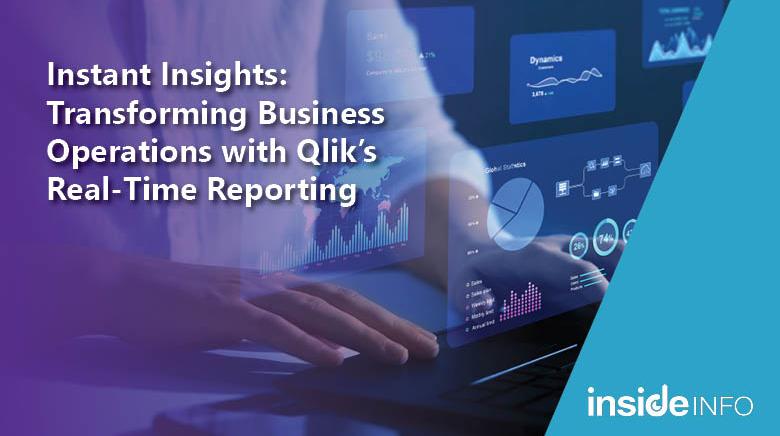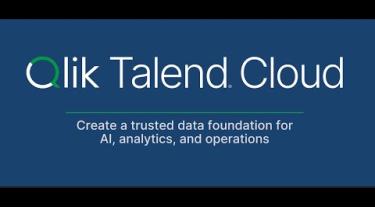
Qlik’s real-time reporting capabilities are transforming how businesses operate, particularly in the areas of sales, logistics, and retail. By providing up-to-the-minute insights, Qlik empowers organisations to make data-driven decisions that enhance efficiency, boost performance, and improve customer satisfaction.
The Power of Real-Time Reporting
Real-time reporting refers to the ability to process and analyse data almost as soon as it is generated. This stands in stark contrast to traditional reporting methods, which often involve delays due to batch processing and manual data entry. The benefits of real-time data are numerous, including increased agility, more informed decision-making and the ability to respond quickly to changing market conditions.
A study by Forrester found that organisations using real-time analytics are 1.6 times more likely to achieve double-digit revenue growth compared to their peers. This statistic underscores the impact that real-time reporting can have on business performance.
Impact on Sales
In the sales domain, real-time reporting enables teams to access up-to-date information on customer behaviour, sales trends and market conditions. This immediate access allows for:
- Enhanced Decision-Making: Sales teams can make informed decisions based on the latest data, rather than relying on outdated reports. This leads to more accurate forecasting and better strategic planning.
- Improved Customer Engagement: Real-time insights into customer preferences and behaviours enable personalised interactions, which can drive higher customer satisfaction and loyalty.
- Increased Sales Performance: By identifying trends and opportunities as they arise, sales teams can capitalise on them more effectively, leading to increased revenue.
For example, a global electronics company leveraged Qlik’s real-time reporting to gain immediate insights into their sales data. As a result, they saw a 15% increase in sales within the first quarter of implementation, as they were able to quickly identify and respond to emerging market trends.
Transforming Logistics
In logistics, real-time reporting can significantly enhance supply chain efficiency and reduce operational costs. Key benefits include:
- Optimising Supply Chain Management: Real-time tracking of inventory and shipments allows for better coordination and reduces the risk of stockouts or overstocking.
- Reducing Operational Costs: Immediate identification of inefficiencies enables quick corrective actions, leading to cost savings.
- Enhancing Responsiveness: Real-time data allows logistics teams to respond swiftly to disruptions, such as delays or changes in demand, minimising impact on operations.
A logistics company using Qlik’s real-time data reporting reduced their operational costs by 20% within six months. By optimising their supply chain and addressing inefficiencies promptly, they achieved significant cost savings and improved overall service levels.
Revolutionising Retail
The retail sector is particularly well-positioned to benefit from real-time reporting. Key advantages include:
- Better Inventory Management: Real-time monitoring of stock levels allows for timely replenishments and reductions in excess inventory, leading to lower holding costs.
- Enhanced Customer Experience: Retailers can use real-time data to personalise the shopping experience, tailor promotions, and respond to customer needs more effectively.
- Boosting Sales: Quick adaptation to market trends and consumer demand leads to increased sales and customer satisfaction.
A major retail chain implemented Qlik’s real-time reporting and saw a 12% increase in sales. By utilising real-time insights to optimise inventory management and personalise customer interactions, they were able to enhance the shopping experience and drive higher revenue.
Integration and Implementation
Integrating Qlik’s real-time reporting into existing systems involves the following:
- Assess Current Systems: Evaluate the current data infrastructure and identify areas that can benefit from real-time reporting.
- Develop a Strategy: Create a roadmap for implementation, including goals, timelines and key performance indicators (KPIs).
- Implement in Phases: Start with a pilot project to test and refine the implementation before rolling it out across the organisation.
- Train Staff: Ensure that employees are trained to use the new system effectively, maximising its potential.
Best practices for a successful implementation include involving key stakeholders early in the process, setting clear objectives, and continuously monitoring and adjusting the system to meet evolving business needs.
Future Trends and Innovations
The field of real-time data analytics is constantly evolving, with new trends and innovations on the horizon. Emerging technologies such as artificial intelligence and machine learning are expected to further enhance the capabilities of real-time reporting. By leveraging these advancements, businesses can gain even deeper insights and more precise predictive analytics.
To stay ahead of the curve, organisations should keep up with these developments and be prepared to adopt new technologies that can drive further improvements in efficiency and performance.
Qlik’s real-time reporting is a game-changer for sales, logistics, and retail. By providing immediate access to critical data, it empowers businesses to make smarter decisions, optimise operations, and enhance customer satisfaction. As the business landscape continues to evolve, embracing real-time data analytics will be crucial for maintaining a competitive edge.



